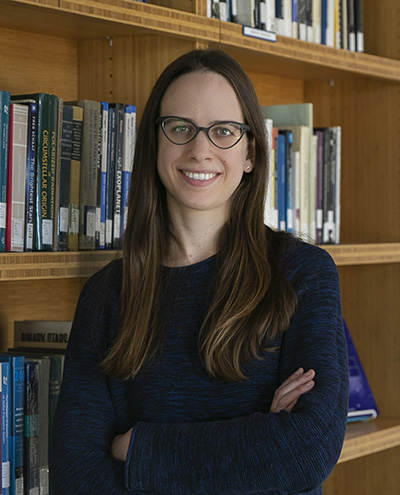The Heising-Simons Foundation has awarded a 51 Pegasi b Fellowship to Elizabeth Bailey to support her postdoctoral research in astronomy and astrophysics at UC Santa Cruz starting in fall 2020.
Established in 2017, the Heising-Simons Foundation 51 Pegasi b Fellowship is named for the first exoplanet discovered orbiting a sun-like star. The fellowship provides up to $375,000 of support for independent research over three years, as well as other benefits including an annual summit to develop professional networks, exchange information and ideas, and foster collaboration.
In her research at UC Santa Cruz, Bailey aims to integrate a growing body of exoplanet data into a cohesive picture to contextualize the foundations of our solar system.
As a theorist, Bailey addresses broad questions about the nature of planetary systems. Her doctoral research has focused on the formation of “hot Jupiters,” a class of gas giant exoplanets that orbit astonishingly close to their host stars. In her postdoctoral fellowship, she plans to develop a comprehensive theoretical framework for understanding observations of distant planetary systems that contain hot Jupiters and other closely orbiting planets. She will also critically examine why our own solar system lacks such planets. Her work will help determine which exoplanets could be habitable and explain how the solar system’s planets relate to these seemingly alien worlds.
“We know our early solar system was an efficient planet production environment, but it completely lacks the types of planets Kepler has observed in many other systems. Discovering more about planets unique from our own will help us understand our place in the galactic context,” said Bailey, who is currently a Ph.D. candidate in planetary science at the California Institute of Technology.
Postdoctoral fellowship supports planetary science research
Elizabeth Bailey wins 51 Pegasi b Fellowship for research at UC Santa Cruz on exoplanets and the formation of planetary systems



